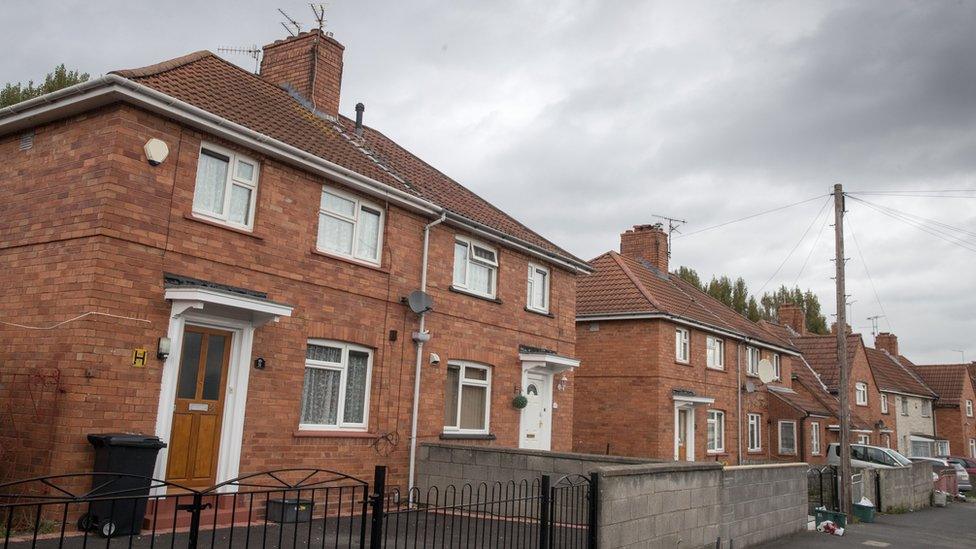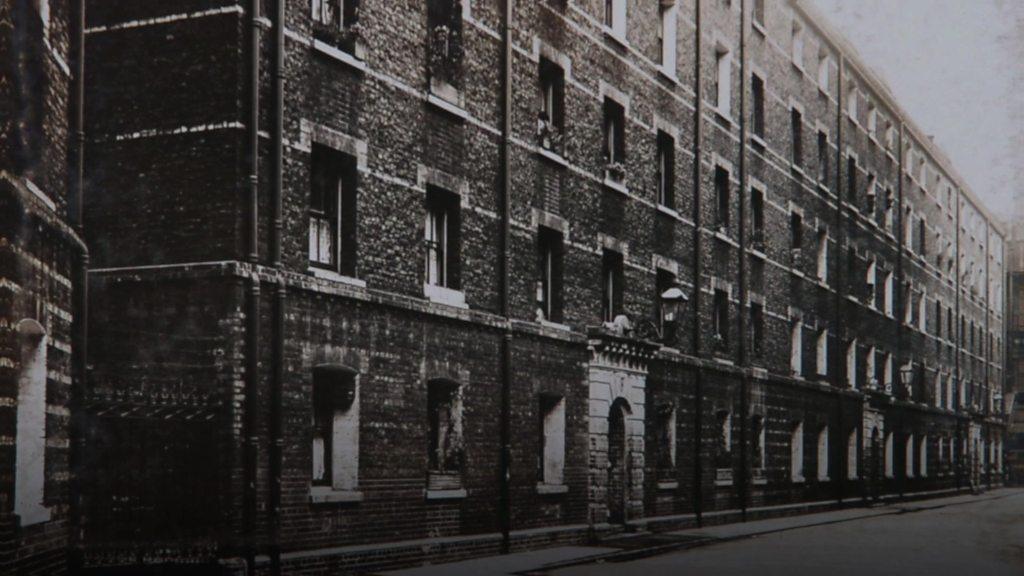Social housing proposals 'to give tenants greater power'
- Published

Giving tenants greater support so they can hold their landlords to account is being considered as part of government proposals on social housing in England.
The measures include speeding up the complaints process and publishing league tables to highlight the performance of landlords.
The Green Paper also pledges a scheme to offer tenants the right to buy 1% of their home each year.
Labour said the "pitiful" plans made no promise to fund more affordable homes.
The plans are part of a "fundamental rethink" on social housing following the Grenfell tragedy.
The latest announcement comes a day after the government unveiled its £100m strategy to tackle rough sleeping on England's streets.
In September last year, then-communities secretary Sajid Javid said the government would produce the Green Paper as soon as possible in the wake of the Grenfell blaze, which killed 72 people.
Green Papers are government documents which set out policy ideas and enable ministers to consult on the suggestions.
Plans include introducing landlord ratings to hold bad practice to account, and providing the regulator with "sharper teeth" to intervene on issues that matter most to tenants.
It also outlines changes to make it easier for tenants to own their homes, such as allowing them to use the government's shared ownership scheme to purchase as little as 1% of their property each year.
What is social housing and why do we have it?
The government has also unveiled a separate consultation into how councils spend the money from Right to Buy sales, as it looks to increase the number of local authority homes.
It sets out proposals to make it easier for councils to replace properties sold under Right to Buy, and to build more affordable homes.
Housing Secretary James Brokenshire, who is launching a consultation on the proposals, said: "Our Green Paper offers a landmark opportunity for major reform to improve fairness, quality and safety for residents living in social housing across the country.
"Regardless of whether you own your home or rent, residents deserve security, dignity and the opportunities to build a better life."
Official figures, highlighted by housing charity Shelter, showed that 1.15 million households were on social housing waiting lists in England last year.
Of the 290,000 homes that became available in 2017, fewer than 14,000 were newly-built homes.

Analysis
By BBC home editor Mark Easton
David Cameron's government tended to view social housing with antipathy bordering on outright hostility. Advisers in Number Ten argued that social housing caused welfare dependency and increased poverty.
The memoirs of Nick Clegg, David Cameron's deputy prime minister, reveal that a very senior government figure asked why would we spend money on social housing - it just breeds Labour voters.
Under the Cameron government, the amount of new social housing started, dwindled to almost nothing.
Then we had the tragedy of Grenfell. That fire changed the politics overnight.
Theresa May said: "For too long in our country, we simply haven't given enough attention to social housing", and "let the legacy of this awful tragedy be that we resolve never to forget these people and instead to gear our policies and our thinking towards making their lives better and bringing them into the political process".
The housing minister was sent round the country to listen to social housing tenants as his then boss, Sajid Javid, said: "The green paper will be the most substantial report of its kind for a generation".
As Green Papers go, it is very green. More the start of a conversation than offering solutions.
There are welcome words about the need to reduce the stigma of social housing, of ensuring that tenants' rights and concerns are treated properly, that the homes themselves are decent.
It does say that one of the principles of the Green Paper and core priorities for the government is that we should be "building the social homes that we need".
But there is little about how that might be done or how it might be paid for. And there will be disappointment in the housing sector that this "once in a generation" report has so little to say about the central question of supply.
There were fewer than 6,000 social homes completed in England in the last year. Experts say we require between 70,000 and 90,000 every year to meet the need. Warm words do not build affordable houses.

Polly Neate, chief executive of Shelter, said the government's plan was "full of warm words, but doesn't commit a single extra penny towards building the social homes needed by the 1.2 million people on the waiting list".
Judith Blake, housing spokeswoman for the Local Government Association, said the proposals were "a step towards delivering more social homes" - but "only a small step".
"There is a desperate need to reverse the decline in council housing over the past few decades."
And shadow housing secretary John Healey said the offering from the government was "pitiful", with nothing that "measures up to the scale of the housing crisis".
He added: "The number of new social rented homes is at a record low but there is no new money to increase supply, and ministers are still preventing local authorities run by all parties from building the council homes their communities need."
The Green Paper only applies to England as social housing in Scotland, Wales and Northern Ireland has been devolved.
The Scottish Government has set out plans to build at least 50,000 affordable homes by 2021.
- Published14 February 2018
